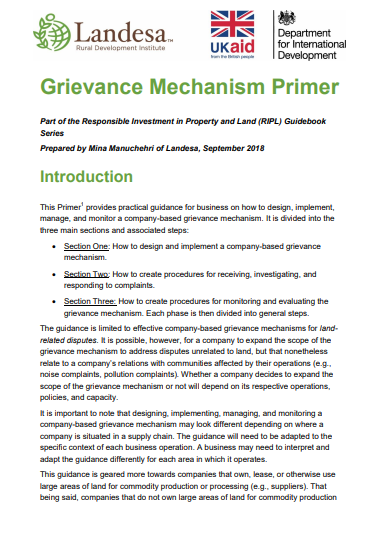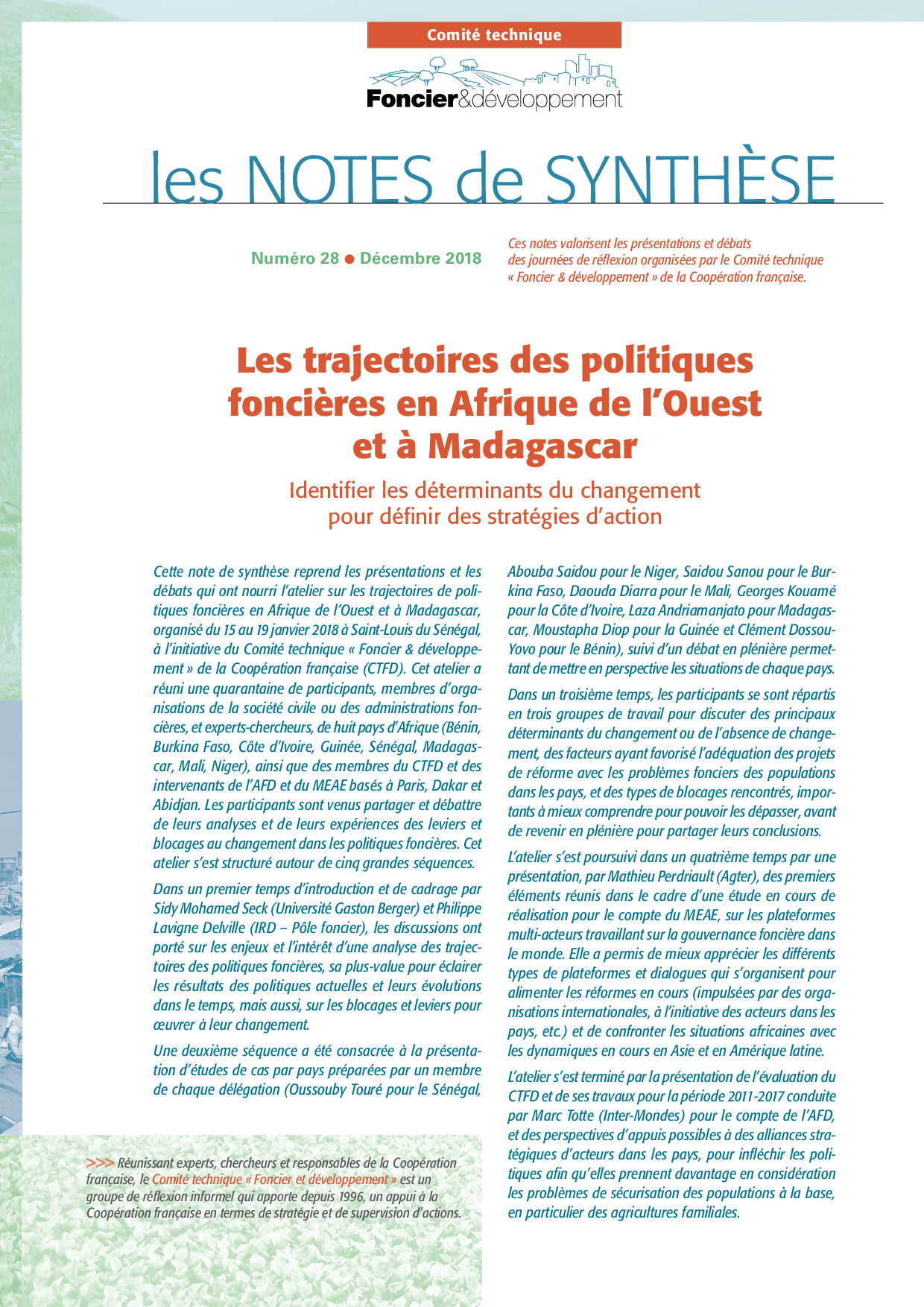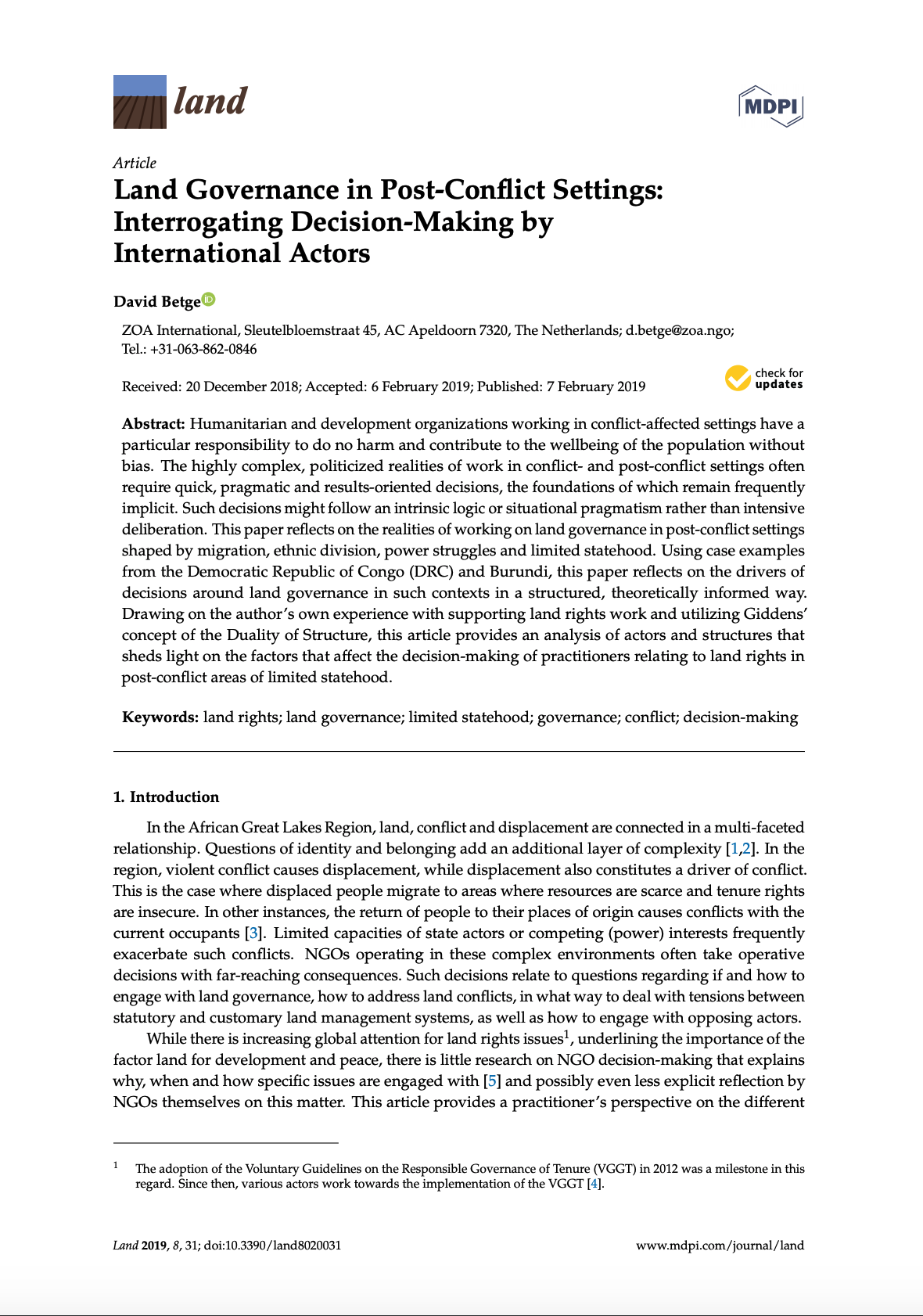AN INTRAHOUSEHOLD ANALYSIS OF ACCESS TO AND CONTROL OVER LAND
March 2014 – This paper assesses the extent to which Rwanda’s progressive legal framework has eliminated gender-based discrimination in access and control over land by taking a nuanced look at women’s ability to make land-related decisions and at the factors that affect their decision-making power.




